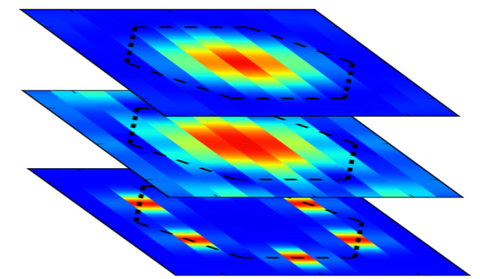Nov 26, 2018
Collaborative Research Center 1143 extended
As announced by the Deutsche Forschungsgemeinschaft (DFG, German Research Foundation) on 26.11.2018, the Collaborative Research Centre (CRC) 1143 at the TU Dresden will be funded for a second period with the title "Correlated Magnetism: From Frustration to Topology". In addition to the Faculty of Physics, the Faculty of Chemistry and Food Chemistry of the TU Dresden, the Leibniz Institute for Solid State and Materials Research (IFW) Dresden, the Max Planck Institutes for Chemical Physics of Solid Substances and for Physics of Complex Systems and the Helmholtz Centre Dresden-Rossendorf are also involved in CRC 1143.
The CRC, which is based in solid state physics, was established in 2015 and can look back on four very successful years of basic research. The core topic is unusual magnets in which "frustration" occurs, i.e. where the interactions of magnetic building blocks are incompatible with each other. This phenomenon often leads to new states of matter that are fundamentally different from those of ordinary magnets such as iron. Central to the description of such states is the mathematical discipline of topology, which deals with global properties of objects. The aim of the CRC is to find and synthesize suitable materials, to study them, to understand their behaviour and to develop possible application concepts. To this end, theoretical investigations are combined with experiments - often only a few degrees above absolute zero and in large magnetic fields. In recent years, researchers of the CRC have made some groundbreaking discoveries in this field, including in particular the synthesis and detailed investigation of the material RuCl3. In the new funding period, from 2019 to 2022, the CRC will consist of 19 subprojects and be funded with a total of 9.5 million euros.
Prof. Dr. Matthias Vojta, speaker of the CRC 1143 and professor at the Institute of Theoretical Physics, sees the DFG's decision as confirmation of the SFB's successful work. "In this CRC, we have made significant contributions to international research in the field of frustrated magnetism over the past four years. The cooperation between the different institutes and working groups has been excellent and I thank all those who have contributed to this success". The Collaborative Research Centre was also the nucleus for the successful application of the Cluster of Excellence "Complexity and Topology in Quantum Materials (ct.qmat)" together with the University of Würzburg.

